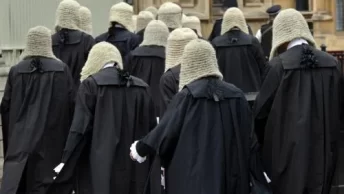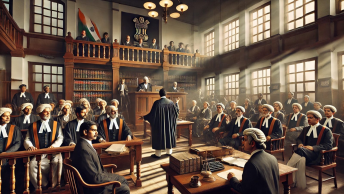This blog post replies to Sarthak Sahoo’s claim against intellectual bias as a ground of recusal. The author provides a rejoinder to his arguments while simultaneously revisiting his...
Summary: This article argues against Anshul Dalmia’s proposal of instituting ‘intellectual bias’ as a ground for recusal for repeating judges in references to larger benches. It...
Ed Note: In this post, our analyst Mrityunjoy Roy, writes about the case of Najma v. GNCTD of the Delhi HC where it ruled that an Oral promise made by a CM or government functionary publicly is...
In this piece, the authors discuss the various hurdles that judicial spaces, both physical and virtual, present for persons with disabilities. They attempt to do so within the theoretical framework...
In part 2 of this two-part series, the author examines the history behind the demand for the setting up of regional branches of the Supreme Court of India, and links it to present day empirical...
In part 1 of this two-part series, the author provides a historical overview of the demand for the institutional division of the Supreme Court of India into Constitutional and Appellate Courts and...
The fourth part of our discussions under the New Scholarship series around public law themed articles will include pieces featured in the recently released Volume 9 of the Indian Journal of...
In this piece, Rangin Tripathy and Chandni Kaur Bagga introduce the arguments they make in their research article titled “Who Are Our Judges? Assessing the Information Disclosure Practice of Indian...
In this article, the authors critique the present Roster System at the Supreme Court of India, and question the authority vested in the role of the Chief Justice of India as the 'Master of the...
This post by Rivka Weill is the second response in the international blog symposium on India and Global Decline in Democracies. In this post the author gives a Indian-Israeli perspective on the role...









